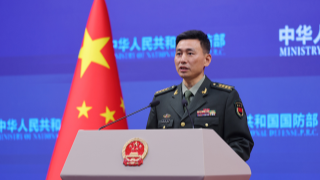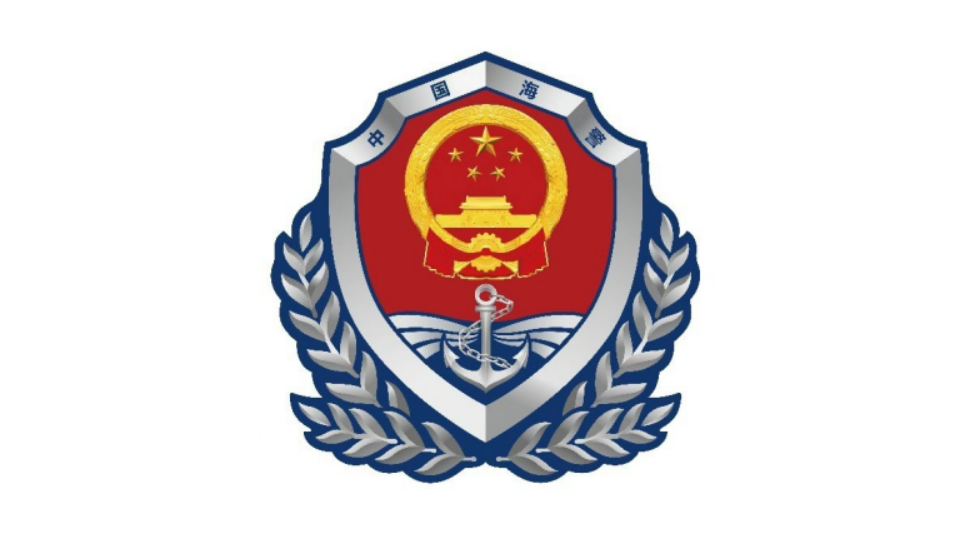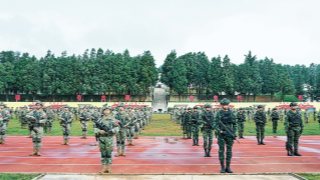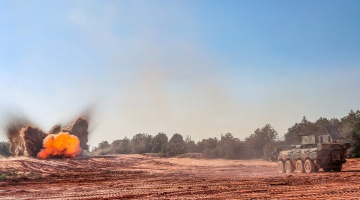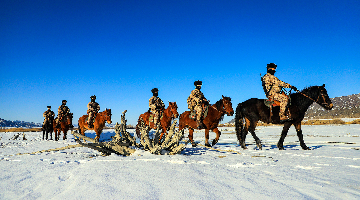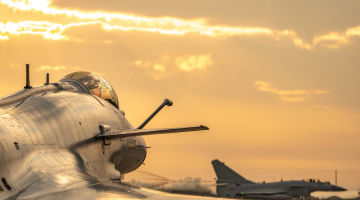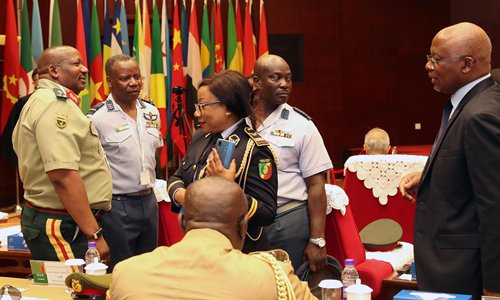
Delegates meet at the first China-Africa Peace and Security Forum, which convened in Beijing from Monday to Tuesday. Photo: VCG
The first China-Africa Peace and Security Forum convened in Beijing on Monday and Tuesday, with almost 100 senior defense and military representatives from 50 African countries in attendance, including 15 defense ministers and army chiefs, as well as the African Union Commissioner for Peace and Security. China's peacekeeping efforts in Africa were hailed by African leaders who recognized the service and devotion of the Chinese military.
With the theme of "Work together for common security," the two-day forum covers Africa's security situation, regional security hotspots such as the Sahel and Horn of Africa, independent peacekeeping capacity-building of Africa, and China-Africa cooperation in peace and security.
African delegates have welcomed the forum as a platform for African perspectives on security to finally be heard.
"China is an important player in peacekeeping. As one of the permanent members of the UN Security Council, it has leverage. Having this forum with African countries to talk about security issues is a right step and direction. It gives us a chance to improve voice of Africa," General David MuHoozi, Chief of the Uganda People's Defense Forces, told the Global Times.
Bound together
"Some countries have forced color revolutions in the Middle East and North Africa, which not only did not resolve issues but created more regional conflicts. China and Africa will firmly work together to maintain sustainable peace and enhance mutual trust," said General Guo Ruobing, Commandant of the National Security College of National Defence University (NDU) of the People's Liberation Army.
"China is the largest developing country and Africa is the largest developing continent," Guo continued, stressing how similar historical sufferings and common development interests bind China and Africa together.
The strengthening of defense cooperation between China and Africa is reflected in educational exchanges of military students from both sides. About 2,000 African students come to China's military academies every year, such as PLA NDU and Dalian Naval Academy.
At the forum, Xu Weizhong, director of Institute of African Studies, China Institutes of Contemporary International Relations, acknowledged that globalization and technology development have further intertwined security issues in Africa with those in the rest of the world. "In such cases, no country can solve all the problems alone. Unilateralism and zero-sum game are not acceptable," he said.
Major countries around the world have increasingly included Africa's security as a critical aspect of their policies toward Africa, adding to its importance, he said.
Proliferation of small weapons, smuggling, and piracy is, among other things, the main security challenges facing African countries, according to Xu, who also noted that foreign intervention has exacerbated instability on the African continent.
Revered efforts
China currently deploys a total of 2,508 uniformed personnel, including 70 women, to eight of the UN peacekeeping missions, including those in South Sudan, Lebanon, and Mali, Xinhua reported. The works in Africa account for more than 80 percent of China's overseas peacekeeping missions.
Over the past 28 years, 13 Chinese soldiers have died in peacekeeping operations, eight of them in Africa.
Billy Mwaningange, Deputy Minister of Defense of Republic of Namibia, spoke highly of China's role in UN peacekeeping, noting China is the second largest financial contributor to the peacekeeping budget.
"China remains supportive, but not dictatorial toward Africa. They are building peace instead. The PLA is a big military force but is building up our army to become stronger," he said.

